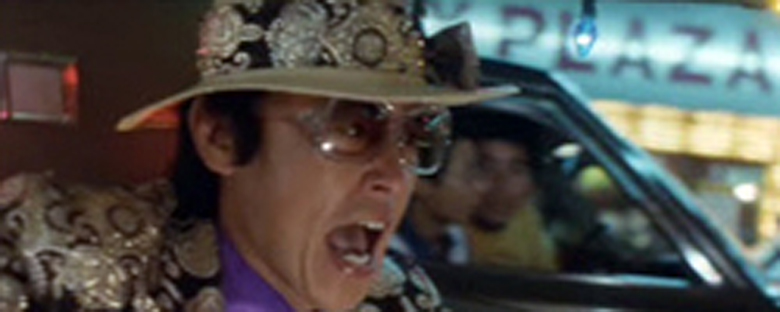Reviews
Kamata koshin-kyoku
Kinji Fukasaku
Japan, 1982
Credits
Review by Matt Bailey
Posted on 05 February 2005
Source Home Vision Entertainment DVD
Related articles
Reviews: Sympathy for the Underdog
I have seen a lot of strange, bizarre, and frankly fucked-up movies in my day, but Kinji Fukasaku’s 1982 comedy Fall Guy is among the strangest. What begins as an exaggerated satire on the vanity of an actor in cut-rate samurai flicks whose fame is fading rapidly takes a sudden left turn into the deeply emotional story of the studio bit player who risks his life performing increasingly dangerous stunts for increasingly comparatively paltry sums. In this sense, it bears a certain structural resemblance to Jonathan Demme’s Something Wild, which begins as a playful light comedy and veers, unexpectedly, into menacing aggression. That superficial likeness aside, I can think of no comparable American film that spoofs so mercilessly those at the top of the Hollywood film industry while offering sincere praise for the hard work of all of the bit players, grips, production assistants, and others without whom no film would ever be made. Films about the behind-the-scenes world of Hollywood are usually all-or-nothing affairs: either everyone unites to skewer one heinous figure (The Bad and the Beautiful) or the whole industry, from top to bottom, is the butt of one big joke (Hollywood Ending).
The strangeness of Fukasaku’s film comes primarily from his direction. His justly famous yakuza films are filled, from credits to credits, with stylized, highly kinetic action. In Fall Guy, Fukasaku applies the same techniques to farce. While the pace of such comedies is often rapid-fire, not even waiting for the laughs, Fukasaku pushes it until it is antic. Combining this with the uniformly over-the-top performances of the entire cast results in a kind of comedy that could be classified as “screwball” if it didn’t make the classic films we normally think of as “screwball” feel in comparison like stately drawing-room comedies. When the film makes the abrupt leap into drama, it is a startling shift, but the audience’s emotional investment in the characters we have come to adore through their clowning holds fast and we are caught up in the tragedy that lies underneath the comedy.
Fall Guy was one of Fukasaku’s biggest successes, though he rarely worked in comedy. That he could be as much a master of that genre as he was of others is only further evidence of his remarkable skill as a master filmmaker.
We don’t do comments anymore, but you may contact us here or find us on Twitter or Facebook.



